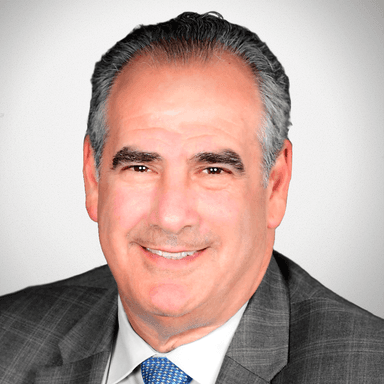
When I look across the Hudson River, I see the engines of economic growth—the buildings that make up the Manhattan skyline. I’m looking forward to the prospect of crossing the river this fall to meet with many of you in person at an event to help jumpstart commercial investment nationwide, create jobs, and build strong communities.
The National Association of REALTORS® will hold a new commercial networking event, the C5 Summit, Sept. 27– 29 in New York City. It will bring together commercial brokers, developers, REIT representatives, economic development leaders, and association executives from around the country to share insights, source capital, and showcase investment opportunities. Registration opens March 31 at nar.realtor/c5.
C5 is just one of the initiatives we’re working on this year to help our commercial members.
In the advocacy arena, we’re developing an education strategy to preserve the 1031 like-kind exchange and the step-up in basis of capital assets received through inheritance, two critically important issues.
To counteract the myth that these tax provisions are nothing but loopholes for the wealthy, we’re working with a coalition of industry partners, including BOMA, the Federation of Exchange Accommodators, MBA, NAIOP, NAREIT, the Real Estate Roundtable, and more than a dozen others, to develop and deliver consistent and persistent education to Hill policymakers and staff.
Our message on 1031s is backed by sound, independent studies that show the vast majority of 1031 exchanges are done by mom-and-pop investors—sole proprietors and pass-through businesses such as partnerships and S corporations—not the super-rich. Research shows that if the like-kind exchange was repealed, most owners would hold on to a property they would otherwise have swapped. That would generate little government revenue and waste an opportunity to put the investment to better use. Read “1031s Prove Their Worth” for examples of how exchanges brought redevelopment and jobs to two Chicago-area properties.
NAR has also joined a coalition of family business trade groups to develop and fund a study later this year on the economic impact of repealing the step-up in basis. As you know, the federal tax allows family members to inherit assets, like real property or stocks, at a stepped-up basis to avoid paying tax on the unrealized gain that accrued. Say John inherits a warehouse from his father now valued at $1 million. His father bought the property for $10,000. If John sells the inherited property, he owes no capital gains tax on the appreciation; the IRS treats the sale as if John had just bought the property for $1 million.
Real estate is one of the most commonly inherited assets. Without the step-up, some small businesses would see their family legacy bulldozed by taxes. These policy issues will remain advocacy priorities as long as a threat remains. We don’t need government policies that further harm an industry already hurting as a result of the pandemic.
In fact, given the extent of the woes in some commercial sectors, we recently opened the REALTORS Property Resource® to Institute Affiliate members. Through February 2022, all CCIM, CRE, IREM, SIOR, and RLI members can search more than 900,000 commercial listings, as well as RPR’s database of public record information on 56 million off-market commercial properties. See details on RPR’s improved user experience and the many resources and tools for commercial practitioners.
By the time we gather in New York City in September, I’m hopeful we’ll be charting a path with more certainty. It’ll be our time to shine in the Big Apple.









